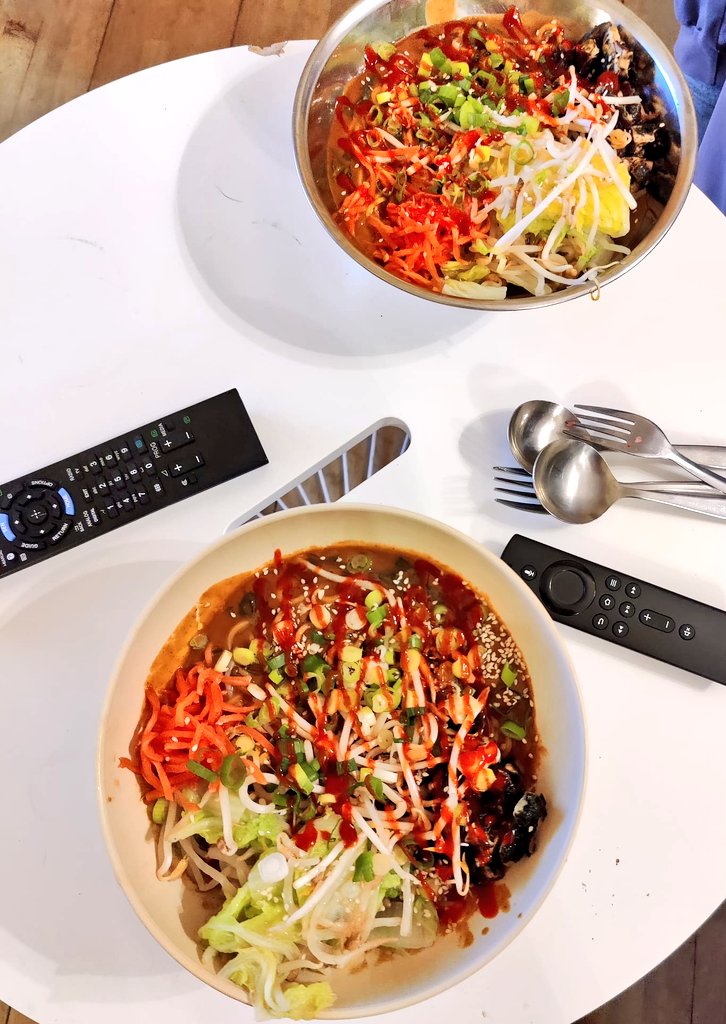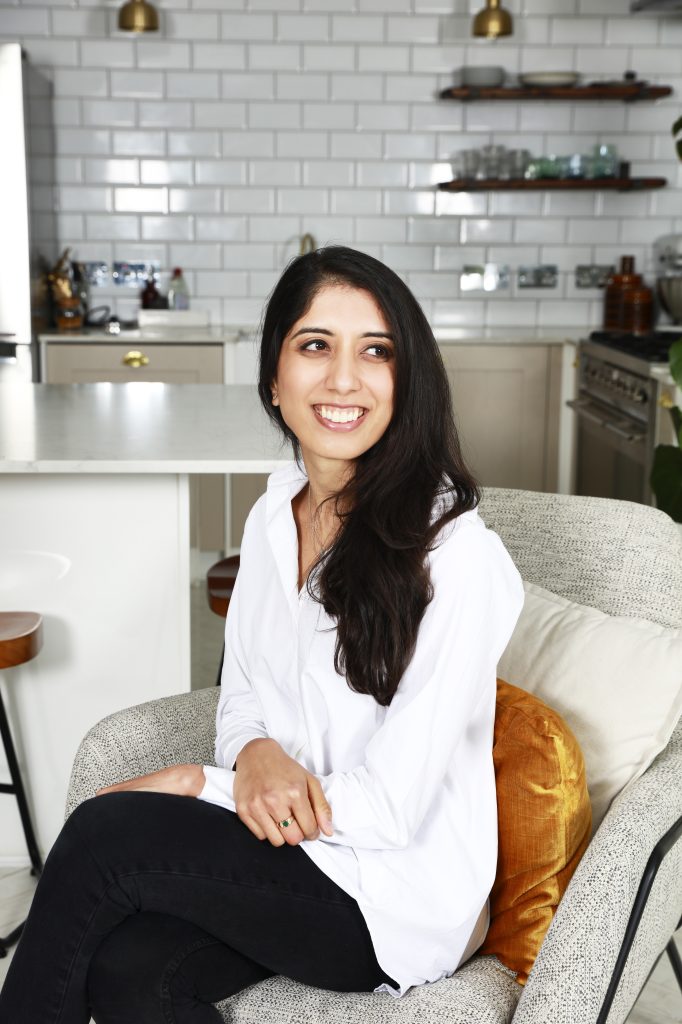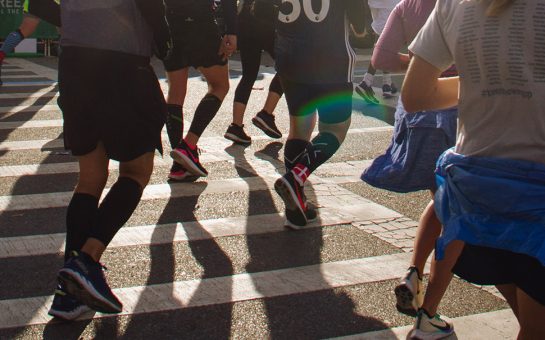Veganuary has seen increased popularity over the past few years, with many Londoners taking on the January challenge.
According to the Veganuary website over 580,000 people signed up to the 2021 campaign, with participants forgoing meat, dairy, eggs and any other food or products derived from animals.
But as with any resolution, it can be hard work to keep going as the month progresses.
The second Friday of the month is known as Quitters Day – the day that people are most likely to give up on their New Year’s resolutions.
Rachel Potter, 23, from Croydon struggled with the transition to veganism at the beginning of the month.

“I’m vegetarian so I thought it wouldn’t be so bad, but it turns out I was wrong,” she said.
Rachel found sourcing food particularly time consuming, especially as a lot of Quorn products contained dairy.
She was also frustrated by the limited number of vegan options in restaurants.
She said: “It’s a lot harder if I’m on the go. There’s normally only one vegan option in most places and if that’s sold out you’re screwed.”
Psychiatrist Hannah Campling, 37, agreed that when she tried Veganuary for the first time in 2020 the biggest challenge was the extra planning for meals.
However she was inspired to take part due to her son’s climate activism at school, and wanted to do something to reduce her carbon footprint.
Hannah said: “I did some reading and watched some films and decided that becoming vegan would be the biggest impact I could have.”
She found that Instagram was a great source of inspiration for quick and easy recipes, and has continued with a vegan diet ever since.
For those struggling she says: “Don’t beat yourself up, you are doing so great by giving it a go.
“The vegan community can be intimidating but reach out because there are lots of us willing to help and support you without being judgemental.”
According to the Food and Agriculture Organisation of the United Nations (FAO) globally, livestock contributes 14% of all greenhouse gases.
On average cattle are the highest contributors of carbon emissions, especially if they are not farmed sustainably.
Alongside this, many animals are ‘factory farmed’ and there are concerns amongst animal activists about the conditions that animals are kept in before slaughter.
Animal campaigner Theresa Soave, 32, has been vegan since 2018.

She decided to switch to a plant-based diet after a discussion about milk production with colleagues at work.
She said: “I was sure that organic milk was kinder to cows, but in fact I didn’t know how it was produced.
“To my disbelief my colleague explained the dairy industry in a nutshell. I looked the facts up and I couldn’t believe I didn’t know how dairy was made.”
At the beginning Theresa’s biggest challenge was finding alternatives to her family favourites.
“I love food, a lot. My family is of Italian heritage so there was lots of salami, Parma ham and Tiramisu. I also love chocolate and cakes.”
She is not alone, according to research from Myvegan there are an average of 40,500 searches for the search term ‘vegan recipes’ each month.
The most Googled vegan foods each month included vegan chocolate at 33,100 average monthly searches, vegan pancakes with 22,200 and vegan cheese at 18,100.
What is clear is that people have an appetite for vegan alternatives to non-vegan recipes, and for adaptations of their usual comfort foods.
Theresa is grateful that now there are much better dairy alternatives, and enjoys experimenting with other cuisines, including Japanese and Indian food.
For anyone trying Veganuary she recommends finding support and a community so that you don’t feel like you are tackling it alone.
She said: “Ask a friend to join you with Veganuary, so you have support and can swap great meal ideas.
“If you have a favourite meal, veganize it. Remember why you started Veganuary and keep reading those daily emails.
“Also well done for signing up, you’re awesome and don’t worry if it doesn’t go to plan, just keep going.”
Expert advice
To discover what constitutes a healthy vegan diet and how to stay on track, SWL spoke to plant-based nutritionist, Board-Certified Lifestyle Medicine Professional and Author of Living PCOS Free, Rohini Bajekal.

She said: “One of the most common mistakes when new to a plant-based diet is not eating enough.
“It’s important to feel satiated and eat a greater volume of food – whole plant foods are generally less calorie dense and bulkier than animal products due to their fibre content.”
She recommends eating larger quantities and making sure to incorporate lots of plant protein to stave off hunger and keep healthy.
“Fill up on fruits, vegetables, whole grains, beans, tofu, lentils and nuts and seeds. Under-eating can leave one feeling fatigued and weak and result in unintended weight loss.
“Carbohydrates are key but the type you choose makes a difference.
“Opt for complex carbohydrates such as whole grains including brown rice, wholewheat noodles and oats as well as starchy vegetables such as pumpkin and potatoes with the skin on.”
She also recommends taking a vitamin B12 supplement.
This vitamin is found in animal products and it can be harder to reach the required levels in a plant-based diet.
For those who are struggling with the transition Bajekal recommends practising self-compassion.
She said: “Don’t give up if you slip. If you eat a slice of non-vegan cheese, don’t beat yourself up.
“All or nothing thinking doesn’t help and every plant-based meal you eat makes a difference. Just get back on track and don’t shame yourself.”
She recommends focusing on your purpose to motivate yourself to continue:
“Whether you have gone plant-based for health, the environment or animals, it’s important to remember your “Why” to stay on track.
“Some people benefit from watching documentaries or joining online vegan groups to better understand the devastating impact that animal agriculture has on the planet.
“Most importantly, remember to have fun and use this time to learn about the wide-ranging benefits of this way of eating and living as well as the history of plant-based diets and veganism in other cultures.”
You can discover more helpful nutrition advice on her Instagram, website and in her new book Living PCOS Free.




